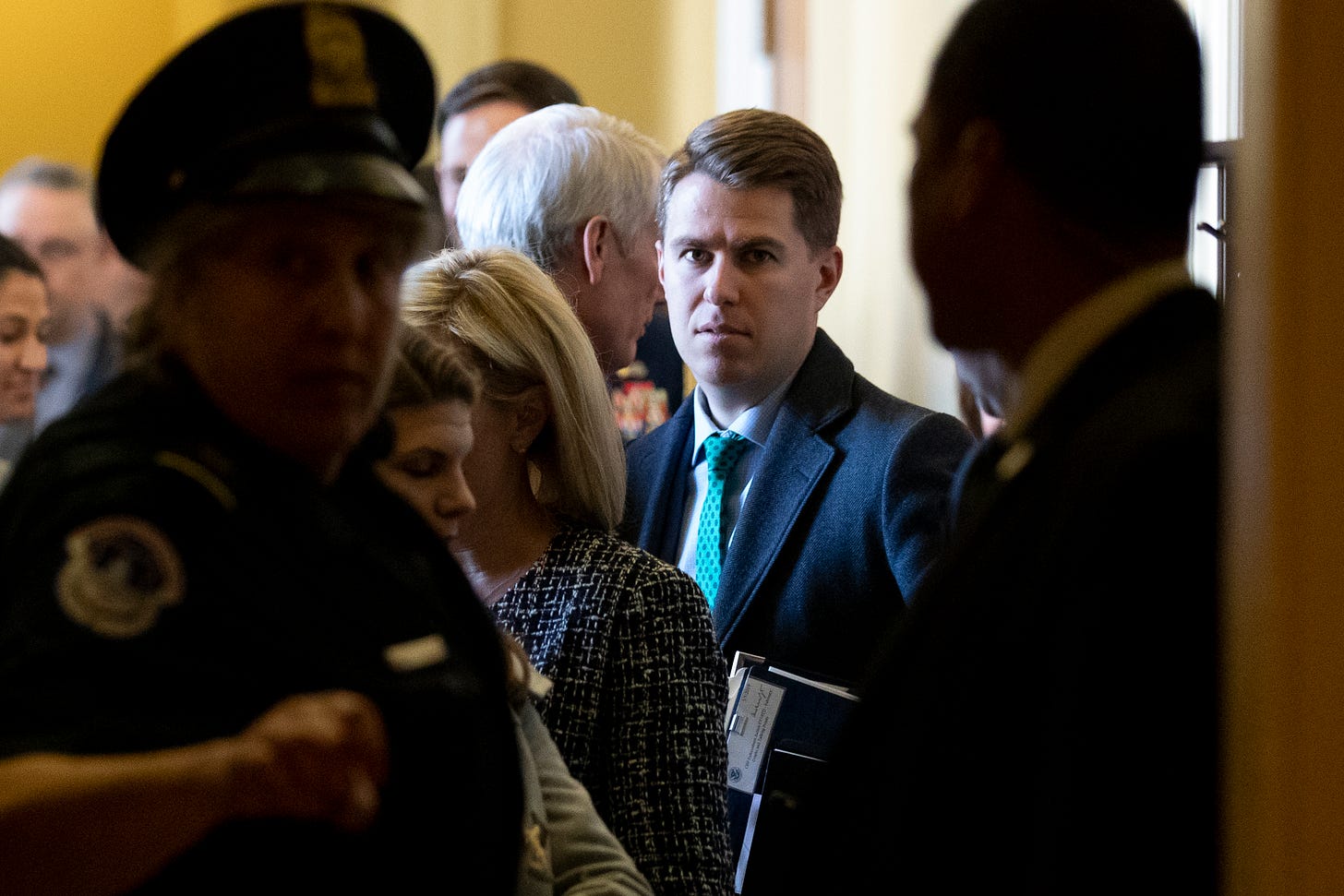
Related highlights:
—
Another day, another anticlimactic conclusion to an overhyped story about the Trump administration.
In 2018, the New York Times launched an entire news cycle with the publication of an opinion article authored by an anonymous “senior official in the Trump administration” titled, “I Am Part of the Resistance Inside the Trump Administration.” Its subhead read, “I work for the president but like-minded colleagues and I have vowed to thwart parts of his agenda and his worst inclinations.”
As it turns out, the “senior official” hotly promoted by the New York Times is just some ex-bureaucrat you almost certainly have never heard of, and who certainly had none of the hard power or policy influence his op-ed suggests.
Former Department of Homeland Secretary Chief of Staff Miles Taylor revealed Wednesday afternoon that he is the anonymous author. Before we go any further, it is important to note that Taylor was not even the DHS Chief of Staff when his article published in 2018. Yet the New York Times billed him anyway as a “senior official in the Trump administration," which is an awfully generous way to describe an obscure, mid-level staffer. After nearly four straight years of these Trump "bombshells," one gets the sense that the New York Times enjoys hyping stories that turn out eventually to be complete duds (see: Russian collusion).
“We do not owe the President our silence. We owe him and the American people the truth," Taylor proclaimed Wednesday in a meandering online essay. “Make no mistake, I am a Republican, and I wanted this President to succeed. That’s why I came into the Administration with John Kelly, and it’s why I stayed on as Chief of Staff at the Department of Homeland Security.”
Taylor, who worked briefly for the Bush administration and recently co-founded an anti-Trump group, the Republican Political Alliance for Integrity and Reform, is on personal leave as head of national security relations for Google. He took leave shortly after he endorsed Democratic nominee Joe Biden. Taylor also serves as a CNN contributor, where he lied outright on Aug. 21 after he was asked point-blank if he is the anonymous “senior official.” CNN claims it did not know he was the author when it brought him on in the fall as a contributor.
“But too often in times of crisis,” Taylor's self-important essay continues, “I saw Donald Trump prove he is a man without character, and his personal defects have resulted in leadership failures so significant that they can be measured in lost American lives. I witnessed Trump’s inability to do his job over the course of two-and-a-half years. Everyone saw it, though most were hesitant to speak up for fear of reprisals.”
It goes on and on like that for some time, hitting all the usual talking points about securing our core democracy or whatever. You get the picture.
Needless to say, this is all just a little disappointing.
When the New York Times published the anonymous op-ed in 2018, it was an immediate sensation, shared everywhere by journalists and readers alike. Practically everyone had their own theory as to the identity of the anonymous author, whom the New York Times very carefully described as “a senior official in the Trump administration.” The article launched dozens of follow-up reports, some from the New York Times itself, dozens of television news segments, and seemingly endless hours of speculation. The anonymous author even scored a book deal.
Theories as to the identity of the author ranged from major-league players, including former National Security Advisor John Bolton, former Secretary of Defense James Mattis, and even Vice President Mike Pence, to lesser-known officials, including former U.S. Ambassador to Russia Jon Huntsman and former Department of Homeland Secretary Kirstjen Nielsen.
However, on Wednesday, we finally learned the identity of the author. It is Miles Taylor.
Yes, the Miles Taylor.
It seems clear now why he insisted on remaining anonymous for so long (aside from the usual job security concerns). Had Taylor put his actual name on that 2018 op-ed, the reaction from the public would have been the same as it is today; a resounding, “Who?” The New York Times surely realized this as well. Putting Taylor’s name on the story is not nearly as sexy as teasing readers with the belief that someone high up in the White House food chain was working as a double agent, a misconception the New York Times absolutely encouraged. You cannot score beaucoup clicks with something as boring as a mid-level bureaucrat.
The news cycle and self-promotion must have been nice for the New York Times, but we cannot ignore that this entire episode stems from what is obviously a willful misrepresentation of Taylor's importance in the overall makeup of the Trump administration.
The New York Times knew what it was doing when it packaged the essay as the principled statements of a “senior official in the Trump administration.” The paper of record stood by in silence as Victoria Coates was accused repeatedly of being the anonymous author, a series of accusations that ended with her eventual reassignment from the National Security Council to the Energy Department. The New York Times stood by in silence as even the vice president felt the need to respond to allegations that he wrote the article.
The New York Times knows full well that it overhyped the story, as evidenced by how readers and other members of the press reacted. The paper, it seems, just did not care that it obviously misled everyone. The chaos that it sowed must have been fun to watch from behind principled statements about defending their source’s integrity and his right to anonymity.
We know Taylor certainly lacks integrity. On Wednesday, he dropped the anonymity bit, too.



